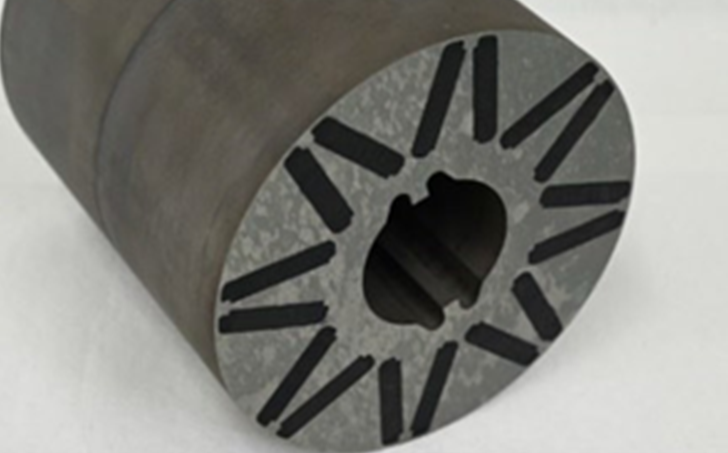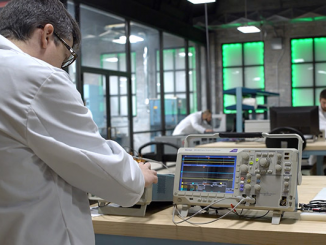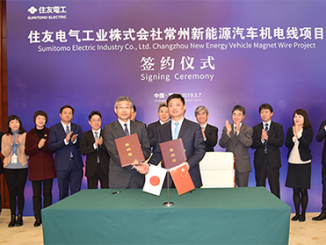
For design engineers, simulations can be important tools in the product development process but actual performance by a prototype is a welcomed step better. That’s the status at materials company Proterial where a prototype motor built with its innovative new ferrite magnets confirmed the promising results from an earlier simulation model – challenging the performance of neodymium magnets in EV motors. Separately, the company announced that it is embracing artificial intelligence techniques in its efforts to develop more new advanced materials serving a variety of markets.
Formerly Hitachi Metals, Proterial reports it has achieved an output exceeding 100 kW a prototype ferrite-magnet motor which breaks into the realm of traction motors for electric and hybrid-electric vehicles that typically use rare-earth neodymium magnets. Following up on the simulations announced in December 2022, and previously reported in Magnetics Magazine, Proterial proceeded to develop a prototype motor using its NMFTM-15 high-performance ferrite magnet and evaluated its performance.
This motor uses a rotor (see photo above) that was designed and fabricated based on results from the simulations. A neodymium magnet motor for driving xEVs was used as the basis for comparison. Performance tests confirmed that, although performance was slightly lower than that shown in simulation results, an output in excess of 100 kW can be obtained.
Going forward, the development team is verifying the difference between the results from simulations and results of tests on the actual motor to look into the possibility of making further improvements in motor performance. Ferrite magnets have higher electrical resistance than neodymium magnets, and therefore contribute to suppressing eddy-current losses at high rotation speeds. According to the company, its proprietary material exhibits among the world’s highest level of magnetic properties as a mass-produced ferrite magnet as of data available on June 2023.
AI for new materials development
On November 20, Proterial announced that it has developed a proprietary materials informatics platform, called D2Materi, that takes a data-driven approach in estimating materials characteristics and designing new materials. It extracts the correlation between materials performance or composition and processes, laws, and characteristics from accumulated data, including data of metallic materials.
Material design modelling using the platform can improve the accuracy of extrapolation since it is equipped with a unique proprietary algorithm that utilizes generative AI. The platform can estimate data outside a known range, from actual data obtained in experiments. It is also highly capable of estimating conditions for producing materials having new properties, says the company. For more info, see www.proterial.com.



